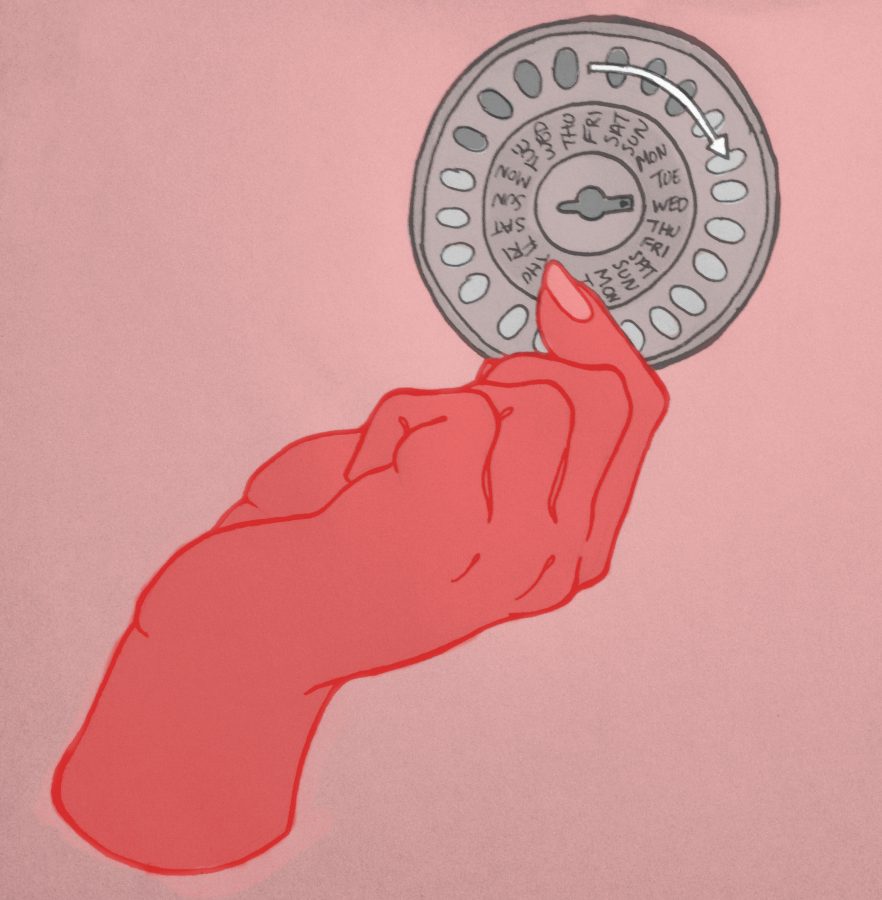Nearly 60 percent of female students at UT report using birth control pills as a method of contraception, and although birth control is often associated with preventing pregnancy, 33 percent of young women also use birth control for noncontraceptive purposes. Purposes can include cycle regulation and the prevention of menstrual complications, ovarian cysts and cancer.
Because of a preconceived bias against birth control being used as contraception, women at UT may not be able to receive the care that they need due to parental disapproval. Many female students rely on their parent’s insurance to cover medical fees, such as birth control. Most insurance companies show charges per month, which means parents would be able to tell their child is buying birth control. This may make female students more hesitant to obtain the resources they need in face of a parent’s disapproval. Since women on campus need birth control pills both as a contraceptive and for other health benefits, the University should provide a way to educate parents about birth control to help them understand their child’s need for it when necessary.
Avery Arsenault, a health science scholar and biology freshman, said that conversations about birth control can be difficult with parents, and it would be nice if the University helped to make the conversation easier.
“Birth control isn’t necessarily only a preventative measure,” Arsenault said. “Although it’s important for protecting against pregnancy at a young age, it’s also helpful for regulating many girls’ menstrual cycles and hormones. I know personally that it has changed the lives of a lot of my friends for the better.”
Parents who are concerned about their child’s choice to use birth control should be provided with professional input so as to give both the parent and the student what they need. The University and University Health Services need to create a way for parents to learn about the different uses for birth control and the health importance of the pill beyond its contraceptive use.
UHS provides information on their website directed toward parents regarding vaccination, insurance and health forms, and sends out a monthly newsletter. None of this, however, specifically addresses birth control. UHS also has an online page about contraception, but this is clearly geared toward informing students, not parents, about the different options. It would be better if there was a more targeted and detailed manner in which parents could learn about birth control and their child’s use of it, possibly by including this information directly on the UHS parent’s webpage.
Students who feel they need to be on birth control shouldn’t be dissuaded by parents who do not have all the information from their child’s university doctor. Providing a better education of birth control would help to combat the stigma that can often be associated with the pill or other contraceptives.
“Sometimes parents don’t understand because their history with health and medicine is going to be different from their kids’ needs,” Arsenault said. “Parents need help to realize that birth control may be important for the well-being of their child, even if it’s not something that they personally completely agree with.”
Providing an informational resource through which parents could better understand the uses of birth control is necessary for creating healthier, less stigmatized conversations. Both as a contraceptive and as a regulatory medication, birth control is essential for many women on campus, and UT should demonstrate support for its students by helping their parents come to terms with the necessity of birth control.
Nayak is a communication sciences and disorders freshman from Austin.


















